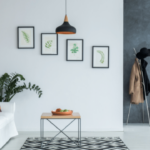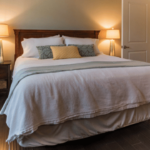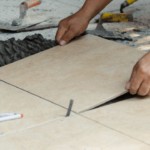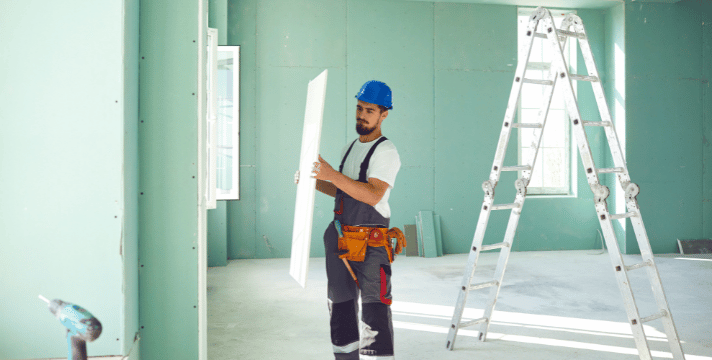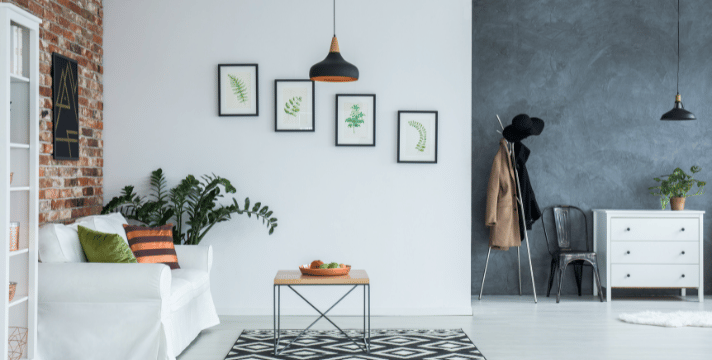Introduction
Imagine a world where you can enjoy your favorite movie or have a peaceful night’s sleep without being disturbed by the noises of the outside world.
Soundproofing solutions, like soundproof drywall, promise to make this a reality. But what exactly is soundproof drywall, and does it really live up to its claims?
In this article, we’ll uncover the secrets of soundproof drywall and explore its effectiveness in creating quieter and more comfortable spaces.
Understanding Soundproof Drywall
Soundproof drywall, also known as acoustic drywall or quiet rock, is a specialized type of drywall designed to reduce the transmission of sound between rooms.
It looks and installs much like regular drywall, but its composition and design are engineered to minimize the passage of sound waves. Soundproof drywall typically consists of multiple layers of gypsum board, viscoelastic polymers, and sound-dampening materials.
How Does Soundproof Drywall Work?
The magic of soundproof drywall lies in its ability to absorb and dissipate sound waves. Traditional drywall can allow sound to easily pass through, as it lacks the dense and resilient materials needed to impede sound transmission. Soundproof drywall, on the other hand, incorporates layers that effectively trap and dampen sound energy.
The viscoelastic polymers within the soundproof drywall are key players in this process. These polymers are designed to absorb vibrations caused by sound waves, converting them into heat energy. Additionally, the multiple layers of gypsum board help to reflect and scatter sound waves, preventing them from traveling through the material.
Does Soundproof Drywall Really Work?
The effectiveness of soundproof drywall depends on various factors, including the quality of the product, the installation process, and the specific noise issues you’re trying to address.
When properly installed, soundproof drywall can significantly reduce airborne sound transmission, such as voices, music, and television noise.
However, it’s important to note that while soundproof drywall can provide noticeable improvements, it might not completely eliminate all sounds.
Soundproofing is most effective when used as part of a comprehensive strategy that includes sealing gaps, using acoustic insulation, and incorporating other sound-dampening materials.
Benefits of Soundproof Drywall
- Improved Privacy: Soundproof drywall is particularly beneficial in spaces where privacy is crucial, such as bedrooms, offices, and home theaters. It prevents conversations and noises from spilling over and disturbing other areas.
- Enhanced Sound Quality: Soundproof drywall not only reduces external noise but also improves the sound quality within a room. It helps to prevent echoes and reverberations, resulting in better acoustics.
- Flexible Application: Soundproof drywall can be used in both residential and commercial settings. It’s versatile and can be applied in new construction or retrofitted into existing spaces.
- Aesthetic Appeal: Soundproof drywall doesn’t compromise on aesthetics. It can be finished and painted just like regular drywall, ensuring a seamless and visually appealing result.
Limitations of Soundproof Drywall
- Cost: Soundproof drywall can be more expensive than traditional drywall due to its specialized composition. However, many users find that the benefits outweigh the additional cost.
- Installation Complexity: While soundproof drywall is designed to be installed like regular drywall, it’s often heavier and requires specific techniques for proper installation. Hiring a professional is recommended for optimal results.
- Impact Noise: While soundproof drywall is effective against airborne noise, it might have limitations in reducing impact noise, such as footsteps or moving furniture. Combining it with other soundproofing methods can help address this issue.
Conclusion
In the quest for quieter and more peaceful living spaces, soundproof drywall offers a promising solution. By utilizing specialized materials and design, it can significantly reduce the transmission of unwanted noise between rooms.
While it might not create complete silence, it can make a noticeable difference in creating a more comfortable environment.
Whether you’re building a home theater, setting up a home office, or simply seeking respite from external noises, soundproof drywall can be a valuable addition to your soundproofing toolkit.



